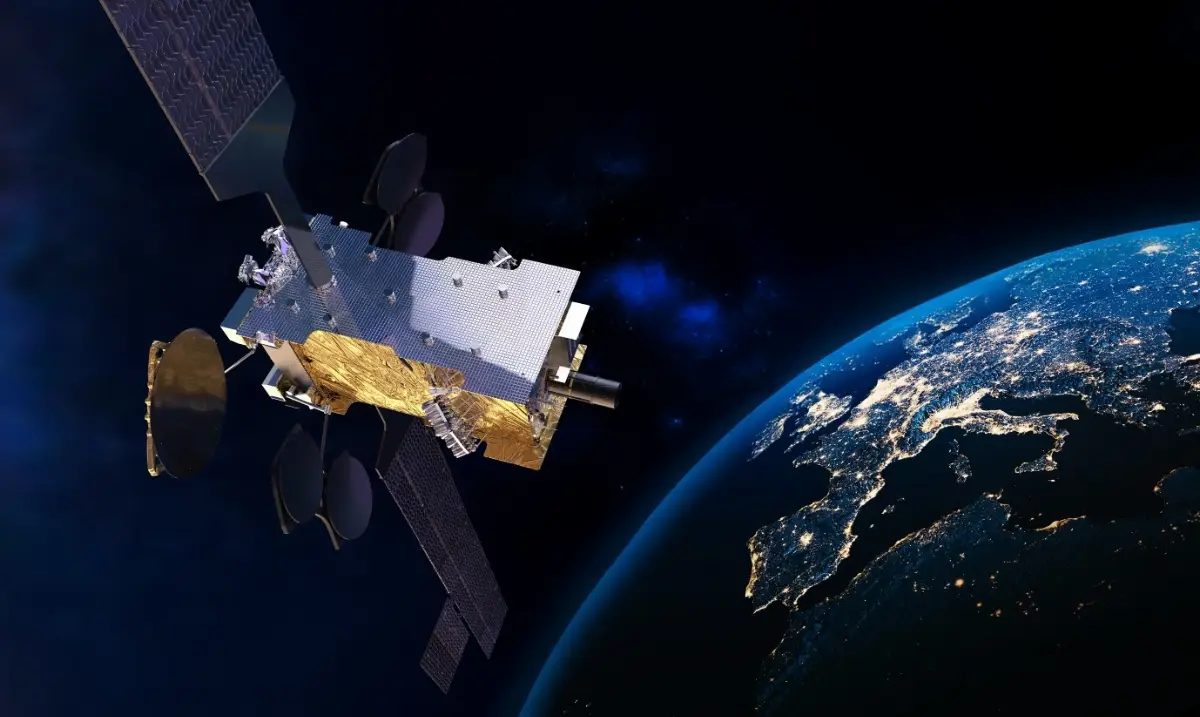
The start of production first quantum key distribution system from geostationary orbit
Thales Alenia Space and Hispasat will make it in the context of the QKD-GEO mission

Civil project most advanced in the world in this sector, with a budget of EUR 103,5 million
Thales Alenia Space, the joint-venture between Thales (67%) and Leonardo (33%), and Hispasat, Redeia’s satellite services operator, have announced the start of the development, manufacturing, verification, and validation phase of the QKD-GEO prototype, Spain’s quantum key distribution system from geostationary orbit. With a budget of 103.5 million euros, the QKD-GEO mission is a project initiated by the Spanish Secretary of State for Telecommunications and Digital Infrastructures and funded by European funds from the Recovery, Transformation, and Resilience Plan (PERTE Aeroespacial), for which contracting is managed by CDTI.
A paradigm shift in secure communications
The advent of quantum computers is providing much greater computational power than traditional computers for specific problems, including prime factor decomposition, which is the basis for currentnon-symmetric cryptography. This will lead to a paradigm shift in secure communications, as it will be possible for hackers with quantum computers to decrypt current encryptions in a matter of seconds. As such, it is essential to develop a system that allows information to be sent with the necessary safeguards in governmental communications (both civil and military), critical infrastructure management and economically, environmentally and technologically relevant services, as well as in large corporations. This technology also represents a first step towards a future quantum internet,which will represent a radical leap in global communications.
Quantum key distribution through an optical communications system makes it possible to confirm with certainty if the keys have been intercepted, as the integrity of communications is verified continuously thanks to the quantum properties of photons. Technology does not allow the use of fiber-optic-based connections for quantum communications for distances over hundreds of kilometers. However, the use of satellites for quantum key distribution is capable of covering large distances, as signal attenuation is lower in free space. Specifically, geostationary coverage at an altitude of 36,786 km, unlike other orbits, makes it possible to establish communications between entire continents with a single satellite, continuously and without the need for complex signal-tracking systems.
A disruptive and pioneering global project
Lasting a total of 24 months, the QKD-GEO project comprises the development of the various components for a future quantum key distribution system from geostationary orbit. Specifically, it encompasses the development of a quantum payload to be hosted on a geostationary satellite, as well as the associated ground segment. This is a disruptive and pioneering global project, since there is currently no quantum key distribution system in the world operating from geostationary orbit.
GEO-QKD has successfully completed the initial four-month system design phase, in which the system architecture has been established and the various elements of the system have been defined. The geostationary payload consists of a high-precision telescope with its pointing mechanism and integrated electronics, a quantum random number generator, a signal source of polarized photons, a laser beacon, and a processor for generating the keys and implementing the communications protocol. The ground segment consists of optical stations equipped with telescopes for receiving the photons transmitted from space and recovering the keys, as well as an operations center that organizes and controls all system activities, ensuring the smooth functioning of both the space segment and user interactions.
The project also includes a field test campaign with a 140-km atmospheric link between the islands of La Palma and Tenerife. These tests will enable functional validation of the ground segment and the quantum payload under fully representative conditions, prior to its implementation in an operational mission in orbit.
Thales Alenia Space is leading from Spain a large industrial consortium composed of Spanish and other European companies, including Thales Alenia Space in France and Switzerland, and with the participation of several entities specialized in the field of quantum communications, such as the Institute of Astrophysics of the Canary Islands (IAC), the Polytechnic University of Madrid and the University of Vigo. Meanwhile, Hispasat is responsible for the design of the geostationary mission and the definition of the business plan, with support from companies like Banco de Santander, BBVA, Telefónica, and Cellnex to analyze real use cases with the banking sector and terrestrial operators.
Spanish contribution to secure European space
In June 2019, the European Commission announced its position in favor of the European Quantum Communications Infrastructure (EuroQCI), which will deploy the first quantum communications nodes in different EU countries in forthcoming years. These nodes, which will cover metropolitana reas, will be connected to each other by satellite to ensure their resilience. For that purpose, IRIS2,the secure satellite communications system promoted by the Commission, developed by a consortium with the participation of Hispasat and for which Hispasat and Thales Alenia Space contributed to the preliminary study, will include these EuroQCI satellite connections among its missions. The QKD-GEO project will allow Spain to configure its main contribution to these European initiatives in the space sector.
AVIONEWS - World Aeronautical Press Agency